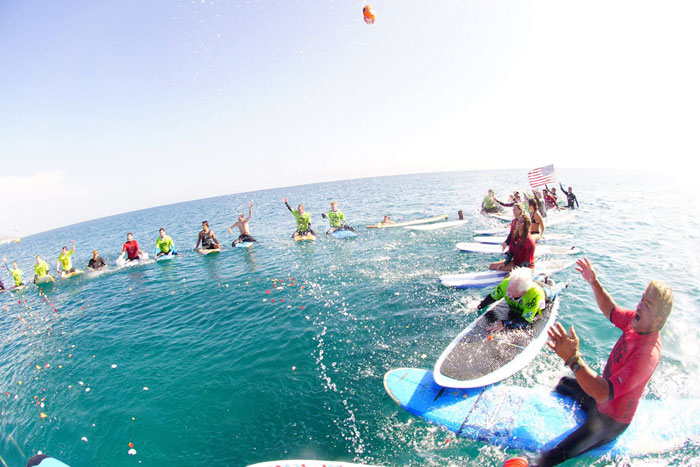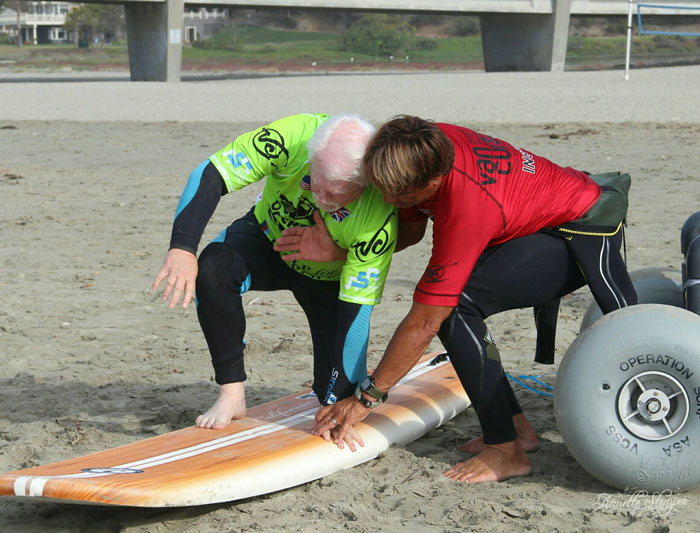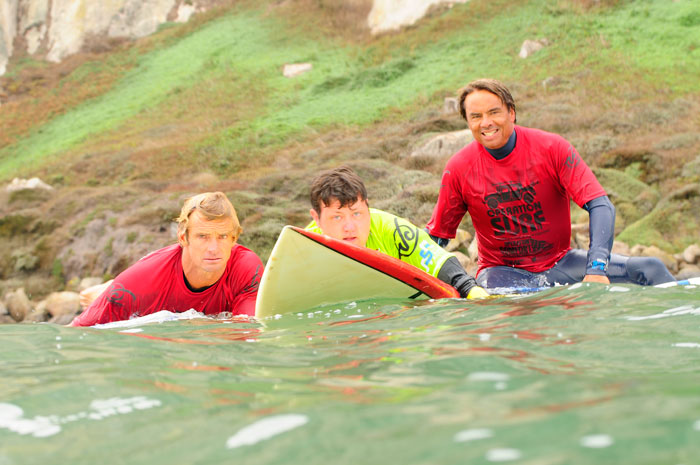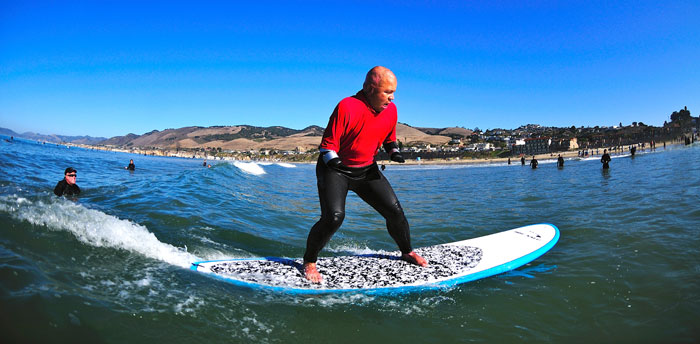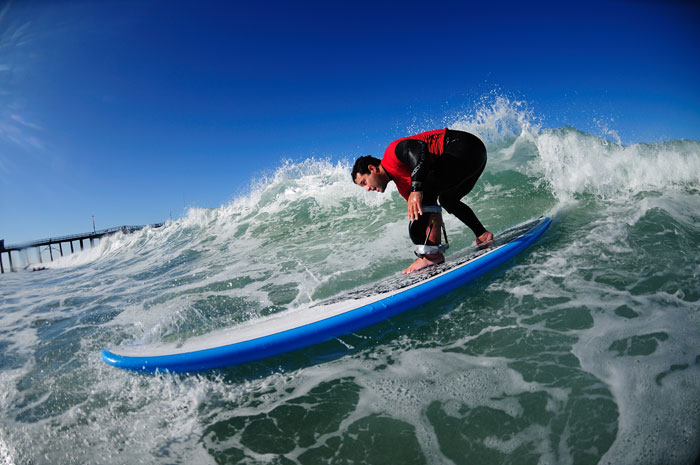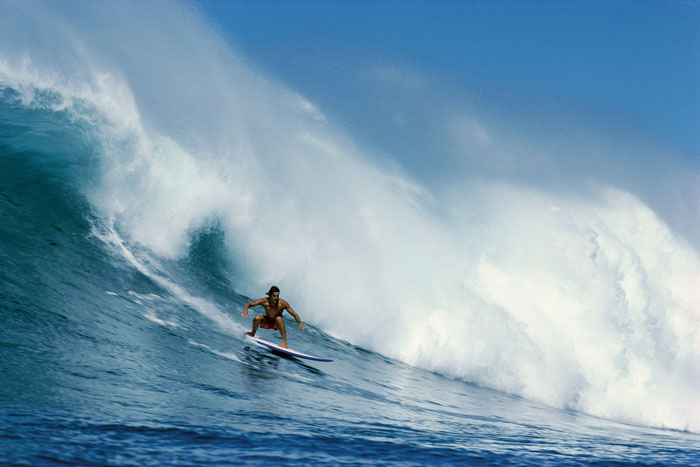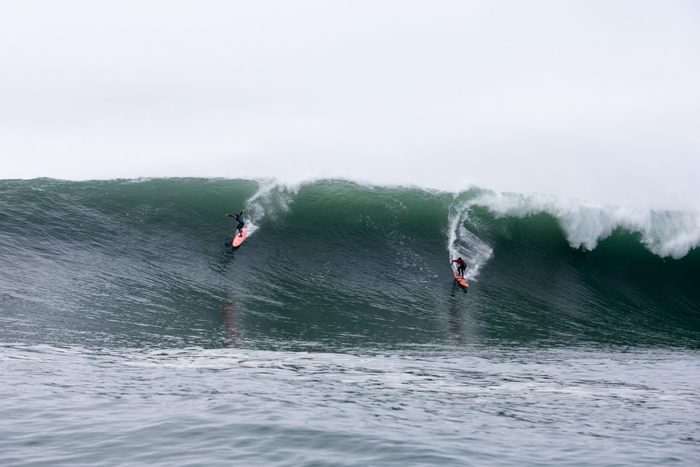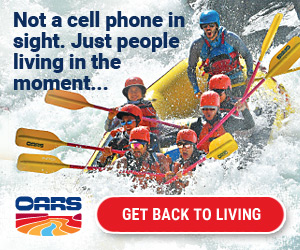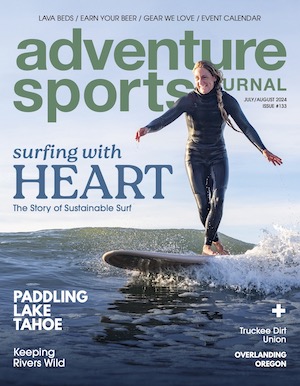- California Enduro Series Announces 2024 Schedule - 11/19/2023
- ASHLAND MOUNTAIN CHALLENGE 2023 – CES RACE REPORT - 10/04/2023
- China Peak Enduro 2023 – CES Race Report - 09/04/2023
Healing veterans one wave at a time
By Leonie Sherman
Two and a half years after an honorable discharge from the Marines, life was a daily struggle for Bobby Lane. “I couldn’t sleep because I had to relive things I’d seen and done every time I closed my eyes,” he explains. “So I decided to kill myself.”
There was just one thing he wanted to do before dying: ride a wave. “I heard about this program called Operation Surf, where vets go to California and learn to surf for free. I fully intended to come to Op Surf, cross that off my bucket list, go home and kill myself.”
“But when I caught that first wave, it just kind of washed everything away,” Bobby recalls with a soft grin. “After that first session, I slept better than I had in years.” Bobby takes a slow breath as he tries to articulate what surfing has come to mean in his life. “The ocean is so gentle and so fierce, it brings me peace. It brings me into the moment. All I can think about is that next wave. I can sit there and think about nothing at all.”
Stories like Bobby’s are Operation Surf founder Van Curaza’s favorite part of the week-long surf camp. “I hear from amputees who got inspired to get out of their wheelchair, when before they thought they would just sit and rot for the rest of their lives. We use surfing to heal people.”
Curaza is a local legend for daring stunts on the big waves of California’s central coast. “But I was a homeless addict, only trying to get loaded,” he explains. “After my last arrest I realized that I couldn’t surf in jail, and unless I made some serious changes, I’d end up there, or dead.” He shakes his head. “Surfing saved my life.” Curaza got clean and sober in 2002. Five years later he embraced service work as the most positive aspect of his new life. Now he runs three recreational rehabilitative surf camps every year.
At the intersection of adventure and service, Operation Surf teaches people with chronic diseases, traumatic brain injuries, missing limbs and acute PTSD to surf. They develop a love for the ocean, conquer fears and form lifelong friendships. Volunteers come from as far away as Wyoming. Unpaid instructors take time off work, fly across oceans and postpone surgery to participate. With only two paid staff and no government support, Operation Surf has touched hundreds of lives.
The Operation Surf adventure starts with a motorcade of vintage cars to retrieve vets from the airport and bring them to one of San Luis Obispo’s finest hotels, where they’ll enjoy luxury accommodation, hot tubs and sumptuous meals for the next week. After a welcome ceremony crowded with police, government officials, and community members, participants are hustled to a conference room for lunch and introductions. This year there are eleven instructors, one for each pair of veterans.
Basic surf instruction follows. Seated in a circle, participants watch while instructors demonstrate proper positioning for paddling out and popping up and explain trajectories and safety zones. Excitement and anxiety mingle in the warm room. Some limitations are obvious; guys in wheel chairs, or with missing limbs. Others are more subtle but no less devastating.
Mark Dawson doesn’t return after the first break. “I have really serious PTSD,” he explains in a wavering voice. “Normally I use a service animal to help me cope, but I couldn’t bring my dog here. And I take photos, it helps me calm down. But my camera lens broke the day I arrived.” He’s shaking as he waits for two volunteers to arrange for early entry to his hotel room. “I’m terrified of the ocean. I know there’s sharks in there. Yesterday I couldn’t even get my feet wet, I was so scared.”
The next morning, the beach at the San Luis pier is a hive of activity as people mill about drinking coffee, moving boards and pushing beach wheelchairs. On-shore volunteers sport pale blue t-shirts, water safety assistants wear white rash guards, instructors red, and participants neon green, so the beach is a flurry of color. Each shirt features a bold silhouette of a military vehicle hauling surfboards.
Brent Edwards, a burly marine from Santa Cruz, is Mark’s instructor. He’ll also be working with David Rhoney, a 260-pound Scotsman who likes to pop wheelies in his wheelchair. Brent gives Mark a brief on-shore tutorial and sends him into the gunmetal green sea accompanied by a water safety volunteer.
Then Brent turns his attention to his bulkier student. He manages to get David from a wheelchair to a surfboard with help from two other volunteers. He then steers his passenger through a mess of whitewater, keeping David on the right side of the board over pounding waves, until they’re in the line up.
To their right, Mark paddles with determination, pops up and catches a modest wave. He sails into shore, the first veteran of the day to stand up and surf. As the wave loses momentum, he jumps off into knee deep water, grins, and paddles back out without even pausing.
Meanwhile, Brent is guiding David into his first wave. He can’t stand, so he catches on his belly, cruises seventy feet into shore, and gets tumbled off the board as his fins scrape sand. Volunteers flock to help. He sits up, struggling to keep his head above the swirling water, a grin splitting his face. “That was amazing!” He shouts to anyone who can hear. “On a scale of one to ten that was like a 400!”
Conversation at dinner is a mild roar as two dozen participants and eleven instructors exchange tales of transformation and triumph. “Surfing helped me find who I am,” explains Martin Pollock, a one-limbed surfer from the UK, who’s taking part in his sixth Operation Surf. “It’s increased my confidence and helped me grow emotionally, like, now I feel comfortable crying, Thinking about surfing while I work out on my hand-bike actually drops my heart rate. Even just looking at waves helps stabilize my moods.”
“I’ve gotten to travel and surf from the UK to Hawaii,” Martin continues. “Last year I met Laird Hamilton. He got a guy to make a special board just for me, so I guess there’s been material rewards as well,” he chuckles.
As the evening wears on, conversation turns to daily challenges that they all share. Men and women who return from military duty often find themselves adrift in a world of civilians who can’t begin to understand what they’ve seen and experienced. At Operation Surf, participants find themselves surrounded by people who can relate to what they’ve been through.
“My favorite thing about this event is watching the relationships people form out in the water,” confesses Heather Miller, recreational therapist from the Center for the Intrepid, a rehabilitation facility for burn victims and amputees next to Fort Sam Houston in San Antonio Texas. She’s been brining folks out to surf on the central coast since 2006. “I mean, watching people conquer their fears and learn to surf is incredible, and the setting is beautiful,” she pauses. “But I love hearing the stories of new friends they’ve made, plans to visit new places. This experience brings folks a newfound purpose in their lives.”
That sense of purpose isn’t just for the veterans. “Surfing can be a really selfish experience,” explains instructor Blaine Johnson, who took a week off from teaching sixth grade in Santa Maria to join Operation Surf. “It’s a big deal to even just give a wave away. Teaching these guys to surf is the first time in my life I’ve gotten that feeling of gratitude to give something away that’s so dear to you.”
The second day of training dawns bleak and raw. Waves are veined with white and looming overhead. Instructors cartwheel over the falls and Martin can’t even paddle out. Blaine surveys the wreckage on the beach. “Here’s an activity people can share that’s just as intense as some of the experiences these folks have faced in combat.”
As high tide approaches, the break keeps building. Vets get rolled and dumped in the pounding waves. A medic runs around tending scrapes and muscle cramps. Warriors emerge from the thrashing with clenched jaws and thousand yard stares, grimacing, complaining, searching for someone to blame. Instructors sit with traumatized students. Anger, depression and anxiety that have been pushed down for years pop to the surface like an empty board after an epic wipe out.
And then the most amazing things happens. One by one, these warriors in transition stand up and find their boards. They square their shoulders and paddle back out into the scary looming surf, surrounded by loved ones, ready to face their demons and catch the ride of their lives.

